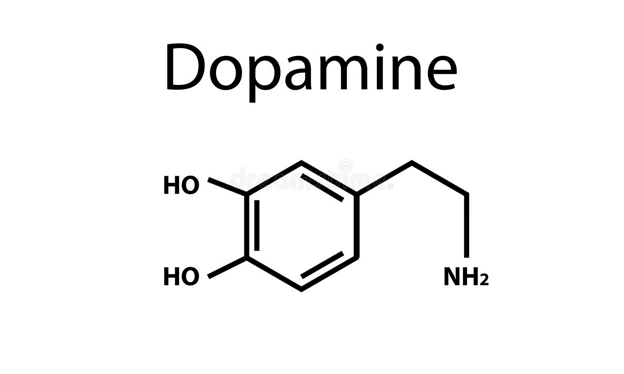Dopamine: Medical Significance and Overview
Dopamine, also known as the happy chemical, is one of the most vital chemicals found in the human body. It is a neurotransmitter that contributes to the production of the brain’s substantia nigra, ventral tegmental area, and hypothalamus. Dopamine levels and transmission increases in response to rewards and many strongly addictive drugs. The role of dopamine dysfunction as a consequence of oxidative stress is involved in health and disease. It is the main chemical that contributes to our feel, memory, focus, and concentration levels. Moreover, it also plays a significant part in other cognitive functions and affects our behavior like:
- ✓ Learning
- ✓ Motivation
- ✓ Mood
- ✓ Sleep
- ✓ Attention Spans
- ✓ Pain processing and Control
- ✓ Heart Rate and Kidney Function
What Are The Effects?
Dopamine deficiency or excess can lead to mental health disorders like depression, Parkinson’s disease, and Schizophrenia. Although it is hard to point out how dopamine contributes to mental health challenges, research shows that they are linked to dopamine excess or deficiency in some manner. For instance, previously, it was believed that Schizophrenia stemmed from a hyperactive dopamine system. However, recent research has highlighted that the symptoms arise from unequal production of dopamine in certain parts of the brain, which triggers hallucinations, delusions, lack of desire, and even motivation.
Another example is Attention Deficit Hyperactivity Disorder (ADHD), which often stems from dopamine deficiency. Treatment for ADHD uses a drug called Ritalin, which boosts dopamine production in the brain.
Drug Misuse and Addiction
Drugs boost dopamine production in the brain, which is interpreted by us as a high. It works by satisfying our natural reward system and triggers hallucinations and other brain works, including emotions and cognition. However, repeated drug use often raises our natural threshold, and to feel the same level of high again, we need a bigger dose. It also reduces the body’s ability to produce dopamine naturally, leading to emotional lows when sober, including episodes of depression.
Benefits and Uses
it is extremely effective for the treatment of Parkinson’s disease. One particular type of neuron degenerates in Parkinson’s disease, and the brain interprets it as not having a signal to send, thus producing less dopamine. The treatment enables neurons in the brain to communicate and control movement, reflecting physical symptoms, including stiffness, poor balance and coordination, and tremor.
In obesity, people tend to take more calories than they need, and research has shown that such people face obstacles when dealing with their reward systems. It means that they need to eat a certain amount of food before their brain signals for satisfaction. Dopamine and serotonin both are feel-good hormones that make us feel good about ourselves.
Lack of such chemicals also distorts our image of ourselves and the way we express ourselves. It goes beyond the mere intake of drugs, and it is something our body needs in adequate amounts to function properly. It is one of the primary reasons doctors prescribe dopamine to treat low blood pressure, low cardiac output, and certain septic shock cases.

